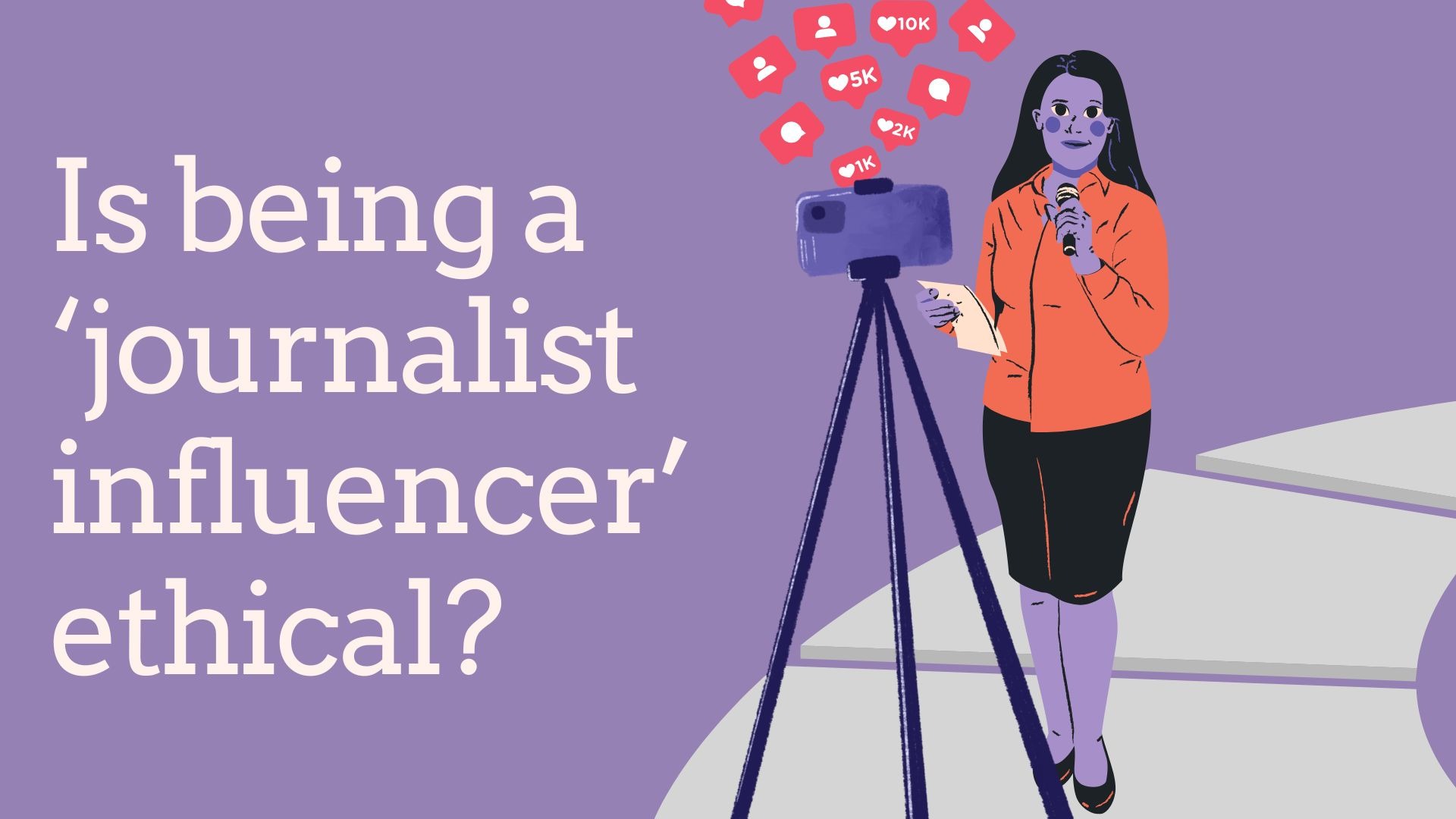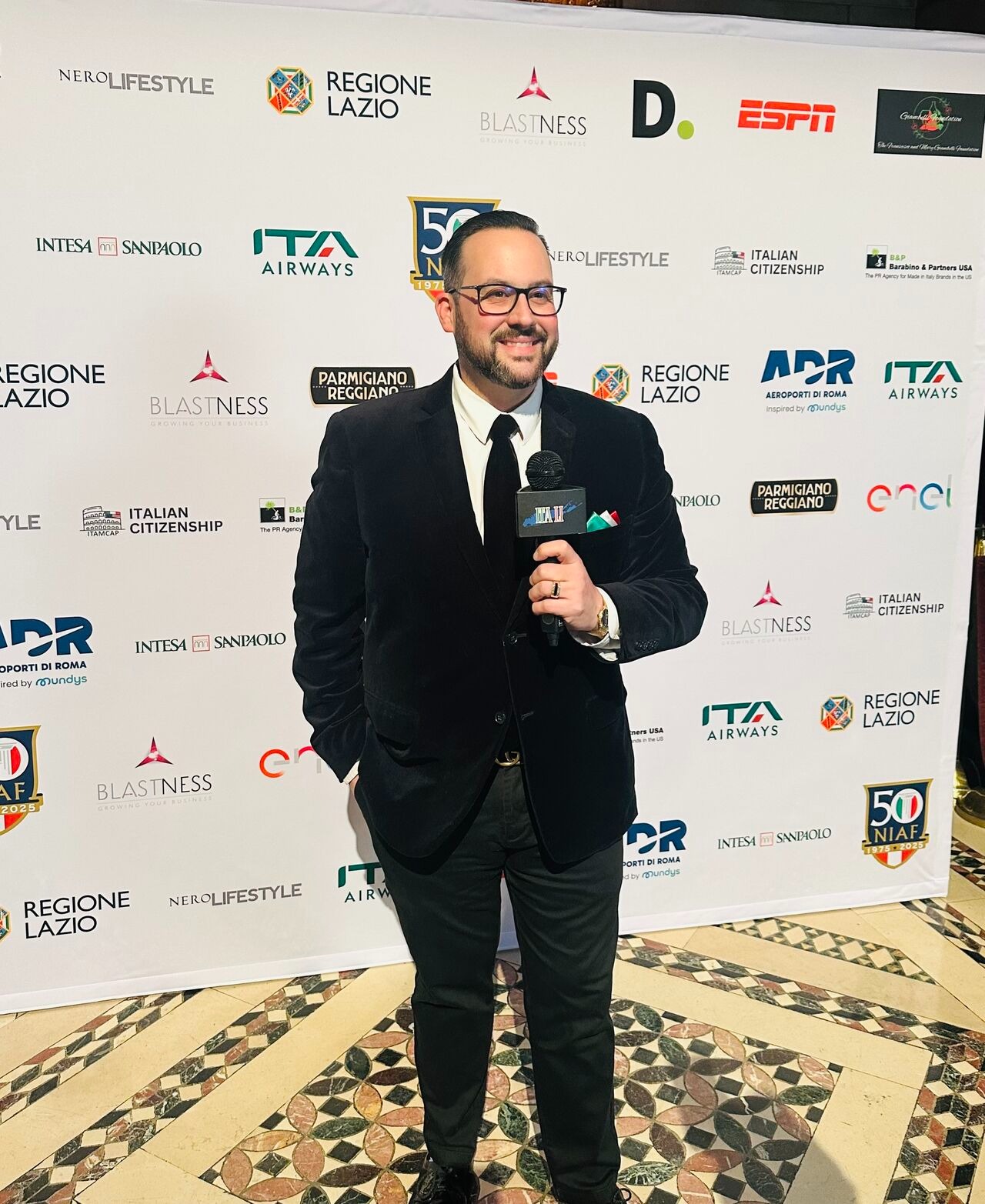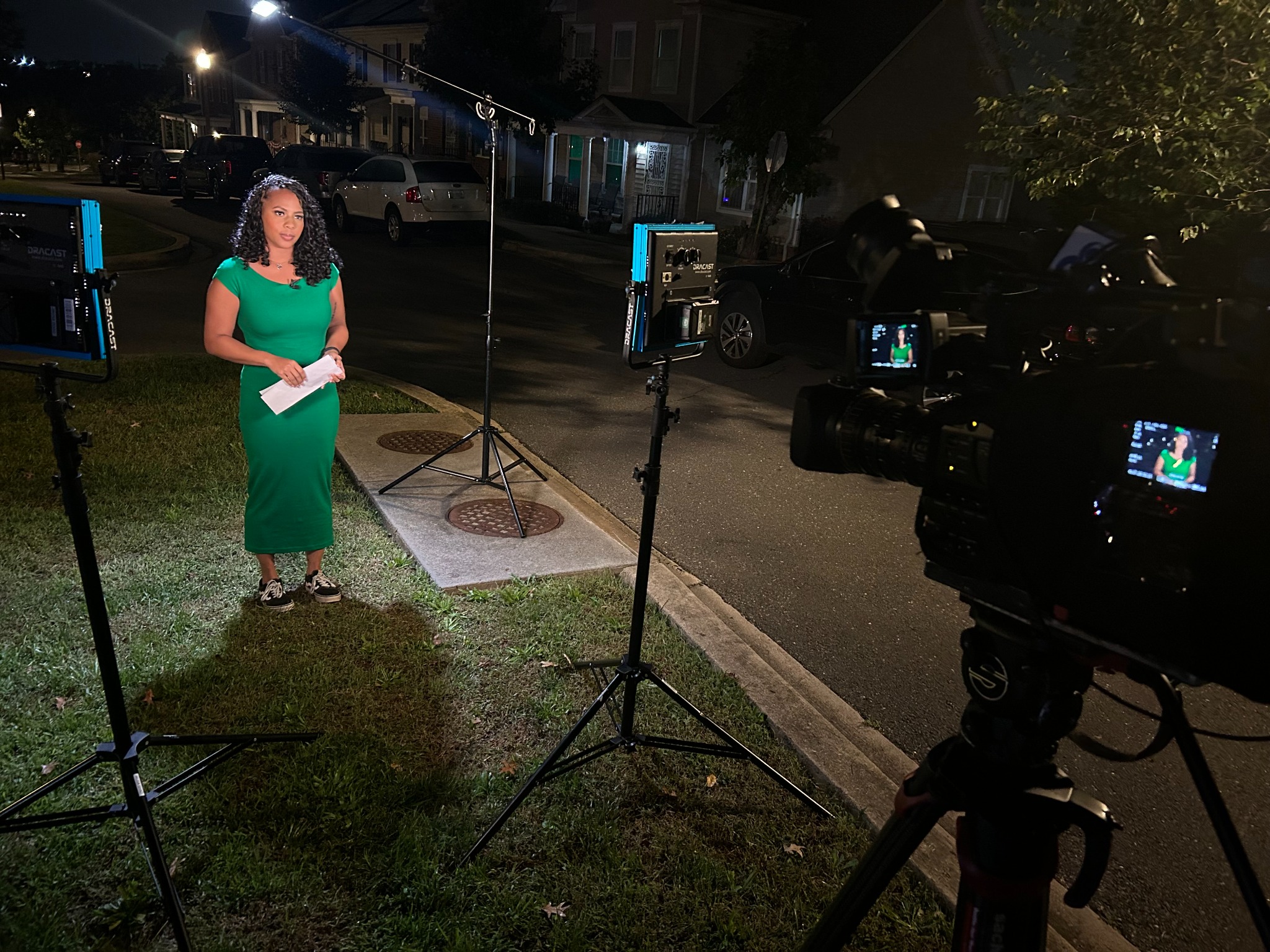
Is being a journalist influencer ethical? The Society of Professional Journalists responded.
By Asia McGill
Kate Broug is a pilot documentary filmmaker and journalist with 154K followers on Instagram, and said she avoids the word "influencer."
“I think influencer comes with a negative connotation,” Broug said in a Zoom interview. “It can blur the lines or it can make people see you as one thing rather than another.”
Journalists are taught to abide by the SPJ Code of Ethics in their reporting, which recommends that reporters don't accept any “gifts, favors, fees, free travel and special treatment.”
But when journalists with high followings are approached by brands and sponsors, the code is put to the test.
Broug said she is conscious of what she posts on her Instagram profile, and refrains from uploading content that would “do well” algorithmically.
Broug did not explicitly mention which partnerships and brands she has worked with, but emphasized that companies only pay for visibility, not the content itself.
“I have a set contract with each of the partnerships that I work with and it very clearly outlines that there is an independency of the storytelling,” Broug said.

Broug finds freedom in being an independent journalist, but acknowledges the pros and cons of being a solo reporter on social media.
"I think on the one hand it (social media) gives journalists a lot of power … it gives journalists a lot of independence,” she said. “I think the danger of that is that there's a chance for corruption and there's a chance for sensationalism.”
In terms of how journalists early in their career should approach their social media presence, Broug advised early caution.
“Look further than the excitement of the prospect of a brand deal, see if it works well with the ethics that you want to follow,” she said. “Don't go for sensationalism, don't take your clothes off.”
Defining influence
Oxford Languages defines an influencer as “a person with the ability to influence potential buyers of a product or service by promoting or recommending the items on social media.”
But the term has evolved beyond its original association with brand promotion. Being an "influencer" can simply mean being a user with a high social following. The personality and content style of the creator is viewed as influential– even if they are not selling anything.
The interchangeable definition of the term may muddy the waters for a journalist, especially if they already have a high follower count.
Blurred lines and gray areas
Chris Vaccaro is the vice president of the Society of Professional Journalists (SPJ), and said to use the SPJ Code of Ethics as a “North Star” to be able to identify whether a reporter is an influencer or a journalist.
The SPJ Code of Ethics is a set of reporting guidelines journalists are advised to use as the foundation of their storytelling to avoid ethical mishaps.
“It's a very gray area between the idea of what an influencer is versus what a journalist is and there shouldn't really be a blurred line,” Vaccaro said in a phone interview. “But there is, because of the way people are using social media to tell stories either from their personal perspective or from an organizational perspective.”
Vaccaro is also a graduate journalism professor at Hofstra University, where his students are taught the digital landscape and power of social media, closely examining the impact of influencers, analysts and commentators in the media.

“My role is educating on journalism, ethics, and storytelling, [and] making sure that we are teaching the next generation of storytellers how to think about multi platform strategy, [and] about how to make ethically sound decisions when it comes to journalism,” Vaccaro said.
The SPJ Code of Ethics does not explicitly address social media etiquette for journalists, but Vaccaro said the guideline still applies to all forms of storytelling, regardless of the medium.
“The code itself is meant for all platforms and all people, and so when it talks about being accountable and transparent, that applies to all platforms,” he said. “When it talks about acting independently, minimizing harm and seeking truth and reporting it, those are the core elements of the code of ethics. They apply to social media.”
A "journalist influencer" is one of many ethical scenarios that Vaccaro and his team examine closely. Vaccaro noted that the code has been modified many times before, and that the process of updating the code involves deep discussion and reasoning.
“There's a bit of bureaucracy in place to make sure that all decisions are proper, and there's a lot of people involved and there's a lot of eyeballs on it,” he said. But there’s a process to make sure that if there are modern, digital and social reasons to adjust the code, they can be discussed and potentially voted in.”
When asked about the future of the SPJ Code of Ethics, Vaccaro said he would like to see it continue to evolve.
“I do think it needs to have room, not to just do away with blurred areas, but to make sure that we're setting ourselves up for success in the future, so that all platforms and all people telling these stories are of the same ethical reasoning, [and] of the same guidelines,” Vaccaro said.
As for now, Vaccaro said there is still an ethical way for journalists to post content in a way that strongly engages an audience.
“You could build a social presence by being a really good storyteller, you could build a social presence with your voice and your tone,” he said. “It does not mean that you have to be biased and be non-objective.”
A rule of thumb
Alexis Wainwright is a WUSA9 reporter who originally began using social media as a way to educate her community and keep her family and friends in the loop of stories she’s covered.
Like Broug, she does not identify herself as an influencer. However, Wainwright said she does not work with any brands or sponsors.
Wainwright posts a combination of work and leisure content to her 19K Instagram followers, and while she hasn’t always posted about her personal life, she realized her audience engaged well with seeing both sides of her.
“Initially I would just post work related stuff, and then I realized that's just not the full perception or viewpoint of who I am,” Wainwright said in a phone interview. “There's so much more to me outside of work.”
Wainwright uses her storytelling skills to document aspects of her life, such as a new food she has tried or her attendance to her first solo concert.

While she enjoys displaying her duality, Wainwright said she is still very conscious of what she posts and content she engages with. To maintain her journalistic integrity, Wainwright uses what she calls the “trick of Facebook.”
“Your family follows you on Facebook, your friends, your teachers, your former professor. If you can't post it on Facebook, then you just shouldn't post it at all,” she said.
Wainwright also relies on her journalistic instinct on how to interact with others online, avoiding anything that suggests an ethical overstep.
“If I have to question myself, ‘is this okay for me to like or comment on or share?’ Then it's just like, I won't do it at all, because the fact that I'm questioning it, there's a reason why,’” she said.
The rules are still being written
The decision for a journalist to insert themselves into a story is what Brendan O’Reilly, a board member of the Press Club of Long Island describes as the difference between a journalist and influencer, and he believes journalists should avoid it altogether.
“The SPJ code of ethics would tell you not to be part of the story, but for journalistic influencers, they are kind of inserting themselves into the story or perhaps inserting their opinions into the story, which is more of an ethical lapse than just making yourself a character in the story,” O’Reilly said in a phone interview.
O’Reilly’s work at the Press Club of Long Island, a chapter of SPJ, includes advocating for the First Amendment and training members on evolving ethical standards. Outside of this role, he also stands as the deputy managing editor at Express News Group, a news organization based in Long Island, New York.
O’Reilly said he thinks it is hard to write an ethics rule book for journalists with a large social presence since they become their “own bosses,” and that journalists who do sponsorships “get into a lot of thorny ethical territory."
“Journalistic influencers are just this emerging area where the rules are still being written and they are diverging from traditional journalism, no doubt about it.” O’Reilly said.
O’Reilly advises young journalists to establish their reporting style early on in their career, and that if opinion is where they are headed, they should know the risk that comes with it.
“There's plenty of people who transition from news to opinion, but it's a lot harder for people to transition from opinion back to news,” he said.
O’Reilly also emphasized the importance of early career journalists being strategic in how they choose to be perceived online, noting that those decisions can have long-lasting effects.
“Anything could get published or leaked or hacked in time, and you don't have to look very far to see examples of people who lost their jobs because of really terrible things they said on social media when they were younger,” O’Reilly said.
While there is no definitive answer as to whether being a journalist influencer crosses ethical boundaries, O’Reilly said that the definition of a journalist continues to expand, but the rules to being one should still apply.
“I think that journalism is a term that gets broader [and] thrown around to describe lots of different things,” O’Reilly said. “We still have to teach ethics and journalism the same way.”
Post a comment